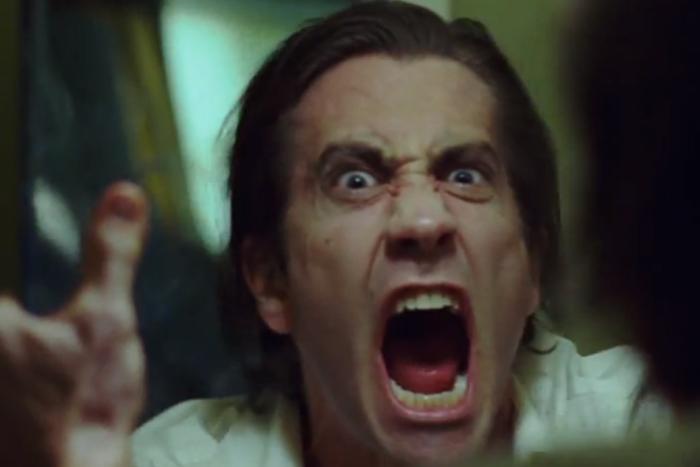When Jacques Lanctôt entered James Cross’ bedroom around eight in the morning on October 5th, 1970, Cross was still in his underwear. Lanctôt and his accomplices let Cross put on pants and a checked sports coat before handcuffing him and walking him outside to a waiting black taxi. At noon, reporters at a local Montreal radio station got a call directing them to the ransom note. The Front de Libération du Québec would release the British Trade Commissioner if the government met their demands, which included: reading the FLQ manifesto on radio and television and publishing it in newspapers; releasing 23 political prisoners; and ensuring safe passage for the kidnappers to either Algeria or Cuba. Cross was 49 years old. Lanctôt was 24.
“The last of the big-time dreamers,” a character calls Lanctôt in Claire Holden Rothman’s new novel, My October. Lanctôt and his fellow FLQ members held Cross for two months before letting him go in exchange for safe passage to Cuba. (Pierre Laporte, the Quebec labour minister kidnapped by a different FLQ cell, wasn’t so lucky; his strangled body was found in the trunk of a car.)
These days, Lanctôt is back in Montreal, where he runs a publishing house and writes a weekly column at Canoe.ca. Here’s what a terrorist of the old school had to say about Martin Couture-Rouleau, the 25-year-old who killed Canadian soldier Patrice Vincent by running him down with his car on October 20th, 2014:
Heard on the radio a spokesperson for the mosque in Saint-Jean-sur-Richelieu, a “converted woman,” say that Martin Rouleau, who frequented the mosque, stopped going because he found that it was “not radical enough.” What does that mean, “not radical enough”? One would love to know what degrees of radicalism were discussed at this mosque. What would be too radical in this enlightened convert’s eyes and what would be “just radical enough”?
It would only be reasonable to believe, he wrote, that there were people at the mosque who influenced Couture-Rouleau’s actions, “even just a little bit” and therefore, were “just as responsible if not more so than young Martin Rouleau.” They must have promised Rouleau a paradise with 72 virgins, Lanctôt wrote. “What are we waiting for to bring these people in, charge them, and close down once and for all these centres of indoctrination where they discuss the methods of making war against us, the ‘impure’?”
It’s a bit surreal to see Lanctôt, whose actions in October of 1970 set in motion the chain of events that resulted in Trudeau’s historic invocation of the War Measures Act, calling for arrests of people only tangentially associated with a perceived terrorist. The Act was proclaimed at 4am on October 16th of 1970; by noon, 238 people had been arrested. In Malcolm Levin and Christine Sylvester’s 1973 account, Crisis in Quebec, they describe the experience of a couple who were woken up at 5am by police walking through their house: “We don’t need a warrant anymore, sir,” a policeman told them. “A special law’s been voted and we can search where we want without a warrant. Listen to the radio, you’ll see.”
In all, nearly 500 people were arrested under the Act. The arrests were widely seen as less an attempt to find FLQ members than to intimidate anyone and everyone involved in the separatist movement. Popular musicians, writers, and intellectuals with separatist sympathies found themselves in jail, and so did members of small neighbourhood citizens’ committees.
Lanctôt references the injustice of the War Measures Act later in the same column without seeming aware of the irony of his own position. The government’s hesitation in pursuing possible extremists, he writes, stems from their fear of being seen as racist or xenophobic. In the 1970 deployment of the War Measures Act, he writes, “the federal government didn’t trouble itself with these lofty democratic principles.” Lanctôt seems to hold several contradictory ideological positions at once: he ends the article by decrying the expansion of powers for police, and asserting that Quebec society needs a charter along the lines of the hotly debated Charter of Values, requiring “new arrivals” to adhere to certain fundamental values.
It’s hard not to read Lanctôt as advocating a double standard in how government should treat Muslim and non-Muslim Canadians—it was wrong to arrest non-violent separatist protesters in the 1970s on suspicion of being associated with the FLQ’s terrorist activities, but arresting worshippers who attend the same mosque as Couture-Rouleau on suspicion of their having influenced his terrorist activities would somehow be justified.
In 2014 as in 1970, Lanctôt does not represent a majority opinion in Quebec. But it is an unfortunate fact that Muslim Canadians all over the country are subject to the kind of suspicions that Lanctôt advocates here. “We’re overwhelmed. We just want to live and let live, and we feel like we’re being punished for something that has nothing to do with this,” Abdelhamid Bekkari, the president of the mosque Couture-Rouleau attended, told the Globe and Mail on October 22.
Lanctôt has made it clear in recent interviews—the 2010 publication of his memoir, Les Plages de l’exil (The Beaches of Exile) put him once more in the public eye—that he does not regret the FLQ’s kidnapping of James Cross. But while Lanctôt does not seem to have learned from his mistakes, Canadian society at large learned quite a lot from the events of October 1970. “The October crisis did something remarkable to Quebec,” said a 2008 editorial in the Montreal Gazette. “Since then the idea of independence has never died, but has been pursued almost exclusively by means of honourable, peaceful and legitimate democratic politics.” The separatist position in Quebec society gained official electoral representation in the form of the Parti Québecois, which was created in 1968 but won the provincial election for the first time in 1976, in the aftermath of the crisis. English Canada has also largely repudiated Trudeau’s use of the War Measures Act.
While all have been labelled “terrorists,” there are, of course, are many differences between Jacques Lanctôt and Couture-Rouleau or Michael Zehaf-Bibeau. It’s questionable whether either Zehaf-Bibeau or Couture-Rouleau can be said to have been pursuing tangible political goals, or ones that could be resolved by democratic means. Couture-Rouleau had no manifesto or lists of demands, and the video left behind by Zehaf-Bibeau has not yet been made public. Thomas Mulcair has suggested that using the term “terrorist” for Zehaf-Bibeau is misleading due to the mental health problems from which he may have been suffering. In the aftermath of their actions, we are still struggling to understand what motivated them. But one thing that’s clear is that the actions of a few should not be a pretext for vilification of the many. Muslim Canadians will no doubt continue to suffer from the perception that attacks like Zehaf-Bibeau’s and Couture-Rouleau’s are an accurate reflection of Islam, and will be disproportionately targeted for increased surveillance by the state.





